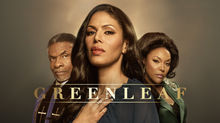I Am a B̶l̶a̶c̶k̶ ̶F̶e̶m̶i̶n̶i̶s̶t̶ Womanist
- Mar 20, 2017
- 3 min read
Everyone has differences but I’ve always known I was different than most people. I was raised as a Baptist Christian in the windy city of Chicago. Unlike many of my peers at church who attended majority black schools, I attended diverse public schools from kindergarten until high school. Being placed in this environment allowed me to understand how I was different. As one of the few dark skinned black girls in my grade school, I was often bullied and teased for my skin, the color of my gums, my teeth (before I got braces), my hair texture and the fact that I was articulate and knew how to code switch from “proper English” to African American Vernacular English (AAVE).
Despite being in honors classes and on the honor roll, my intelligence was often questioned, and the confusing part was I didn’t know if it was because I was a woman or because I was dark skinned. You see society doesn’t like double negatives, and to society being black and being a woman have always been perceived as negative. When it comes to my identity I see myself first as a child of God, second black, third a woman, and lastly as a musician.
It’s hard to understand the argument that one “doesn’t see color” because so many of my life experiences have been defined by my color and race. Our differences specifically with skin color, race and culture are what makes humans different and gives us a story, a struggle, or a testimony to share. Erasing color won’t erase the hundreds of years of oppression that my people have experienced.
I’ve always stood for the rights and equality of women, so you would assume that I’d be a feminist but I’d like to say that I am a womanist. One of my favorite authors Alice Walker defines womanism as, “a black feminist or a feminist of color” as well as “a woman who loves other women sexually and/or non-sexually”. At a glance the concept sounds divisive but historically white feminist that are often praised for their activism, like Susan B. Anthony were racist and rejected intersectionality when it came to feminism. They didn’t want to listen to the issues that women of color specifically faced and didn’t want to acknowledge that women of color have different experiences than white women. Even today mainstream feminists like Taylor Swift or Jennifer Lawrence don’t acknowledge and stand up for intersectionality or women of color. Mainstream feminism also fails to acknowledge and support the rights of queer and trans women. As a black woman who has experienced racism, sexism, AND racialized sexism I cannot support a movement that barely acknowledges me.
Through all the struggles I encountered with my identity I found comfort through gospel music in a choir named the Soul Children of Chicago at the age of 10. For 8 years this organization gave me a space to express myself musically and spiritual. It allowed me to bond with people my age who had also been out casted and opened up opportunities to perform before people who I never would have imagined and countries I never would have believed I could travel to. As time progresses in “Trump’s America”, it becomes harder and harder to live in this country as anything other than a cis white man, but what pushes me to fight for black women and other marginalized groups is my ability to fight against these systems of oppression put in place and that is what defines my identity.



































Comments